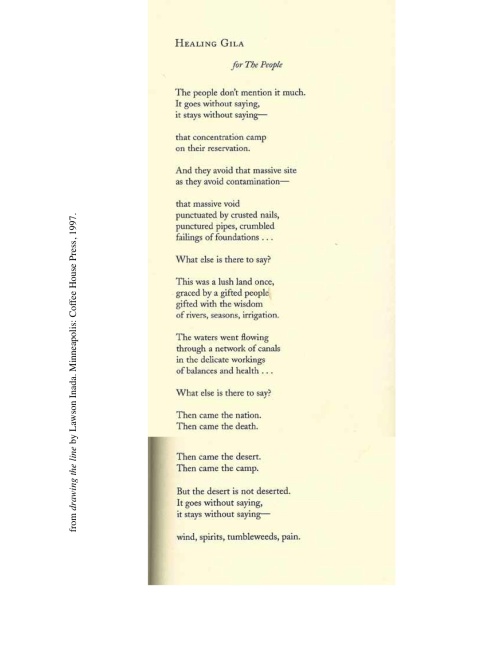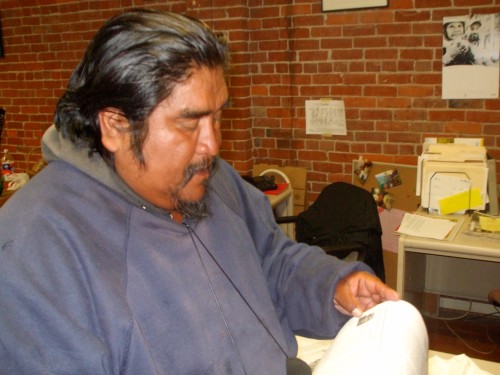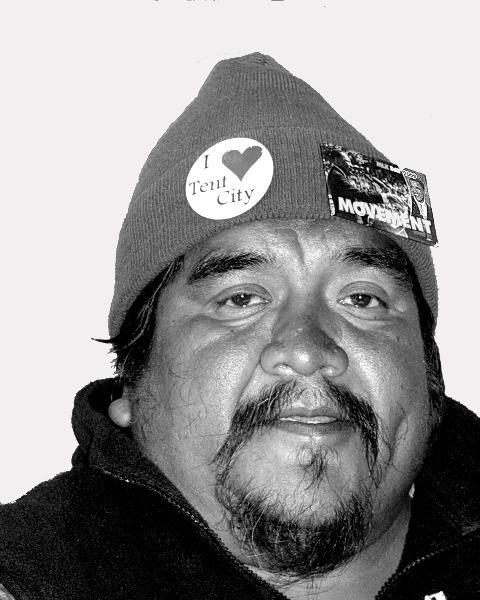
Leo Rhodes, Lawson Inada, Kaia Sands
Last night, in the drizzling cold, a crowd of around 50 gathered to hear several local poets read their work in downtown Portland’s Director’s Park. Among them were vendor, poet and Street Roots columnist Leo Rhodes, who was invited specifically to read with Oregon Poet Laureate Lawson Inada.
Both Rhodes and Inada share a common ground, solidarity beyond even poetry.
At four years old Inada, a Japanese American, was taken prisoner for the duration of World War II and held in internment camps throughout the West. Inada has written extensively about his experiences, including the poem “Healing Gila, for the people” (below) about Japanese experiences on the Gila River Indian Reservation in Arizona during that time period.
Rhodes, a Pima Indian grew up on the Gila River Indian Reservation in the 1970s.
Two weeks ago, during a workshop facilitated by Kaia Sand, Rhodes was introduced to Inada’s work, and the poem “Healing Gila, for The People.” Realizing the poem was generated by an experience from the very reservation he grew up on thirty years before, he was immediately touched, and set out to work on a complementary piece about his experience in the context of Inada’s poem.
In a simple twist of fate, Inada and Sand were scheduled to read together at an event last night put on the by Literary Arts program of the Multnomah Arts Center and the Portland Parks Bureau that is featuring a series of one-day writing excursions this summer in various locations led by local writers called “Writing Places”.
She invited Rhodes, and, in front of the gathered crowd, introduced the two poets. Inada and Rhodes then read their poems inspired by the Gila Reservation experiences in the context of the internment camps.
Sand also read, along with several other well-known poets, including David Abel, Alison Cobb, Chris Daniels, and Joseph Bradshaw.
Sand has been featured in Street Roots and is currently working in partnership with the Oregon Nikkei Legacy Center, Street Roots, Sisters of the Road, and TPI on a project exploring the parallels between people experiencing homelessness and the treatment of Japanese American citizens during World War II. The project will be highlighted during the celebration of the 20th Anniversary of the Japanese Plaza in July.
Gila, the Internment Camp on Gila Indian Reservation, By Leo Rhodes
I didn’t know their names or faces
I really didn’t know too much of their history
All I’ve seen was slabs of concrete in the ground
Foundations I was told for peoples long ago
Elders spoke of soldiers, barbed wire, and barracks
“Prisoners?” I would ask
“No” would be the reply
With stares of pain and concern





















